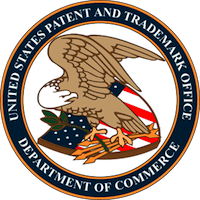US Patent Office sets up new hurdle for software patents
 The US Patent Office has put a further stop to the granting of patents for mathematical formulae and software "per se". In future, the authority's examiners in Washington, DC will have to clarify whether a patent application is limited to a "mathematical algorithm applied to a tangible practical application that resulted in a real-world use". Furthermore, patents cannot be claimed for "every conceivable application" of an algorithm in a specific field of technology or a technology in general.
The US Patent Office has put a further stop to the granting of patents for mathematical formulae and software "per se". In future, the authority's examiners in Washington, DC will have to clarify whether a patent application is limited to a "mathematical algorithm applied to a tangible practical application that resulted in a real-world use". Furthermore, patents cannot be claimed for "every conceivable application" of an algorithm in a specific field of technology or a technology in general.
While the Board of Patent Appeals already established the new eligibility criteria in a decision![]() last August, it's only now that the criteria were made public and declared a precedential opinion to be used for future patent decisions by the US Patent Office. The appeal in question concerned the rejection of patent application number 10/014,192, which was made by programmer Srinivas Gutta on behalf of the Dutch electronics giant Philips.
last August, it's only now that the criteria were made public and declared a precedential opinion to be used for future patent decisions by the US Patent Office. The appeal in question concerned the rejection of patent application number 10/014,192, which was made by programmer Srinivas Gutta on behalf of the Dutch electronics giant Philips.
The decision is largely in accord with the decision in general the US Circuit Court of Appeals reached against patents on business methods and software in the much-publicised case of US programmer Bernard Bilski. According to the ruling, patentable programs or methods must be tied to a specific machine or apparatus. Another requirement stipulates that software must "transform a particular article into a different state or thing", causing effects in the physical world.
Bilski and his partner appealed against this decision at the US Supreme Court as they feared a "regression to the 19th century". The Supreme Court accepted the case, showing scepticism towards software patents at the hearing in November. A decision is expected to be reached in mid 2010. Last September, the US Patent Office also introduced new guidelines stipulating that no industrial property protection is to be granted for computer programs "per se". This is in keeping with the guidelines of the European Patent Office, which does, however, interpret the regulations broadly and grant industrial property rights for "computer-implemented inventions". (Stefan Krempl)
(crve)
![Kernel Log: Coming in 3.10 (Part 3) [--] Infrastructure](/imgs/43/1/0/4/2/6/7/2/comingin310_4_kicker-4977194bfb0de0d7.png)

![Kernel Log: Coming in 3.10 (Part 3) [--] Infrastructure](/imgs/43/1/0/4/2/3/2/3/comingin310_3_kicker-151cd7b9e9660f05.png)
















